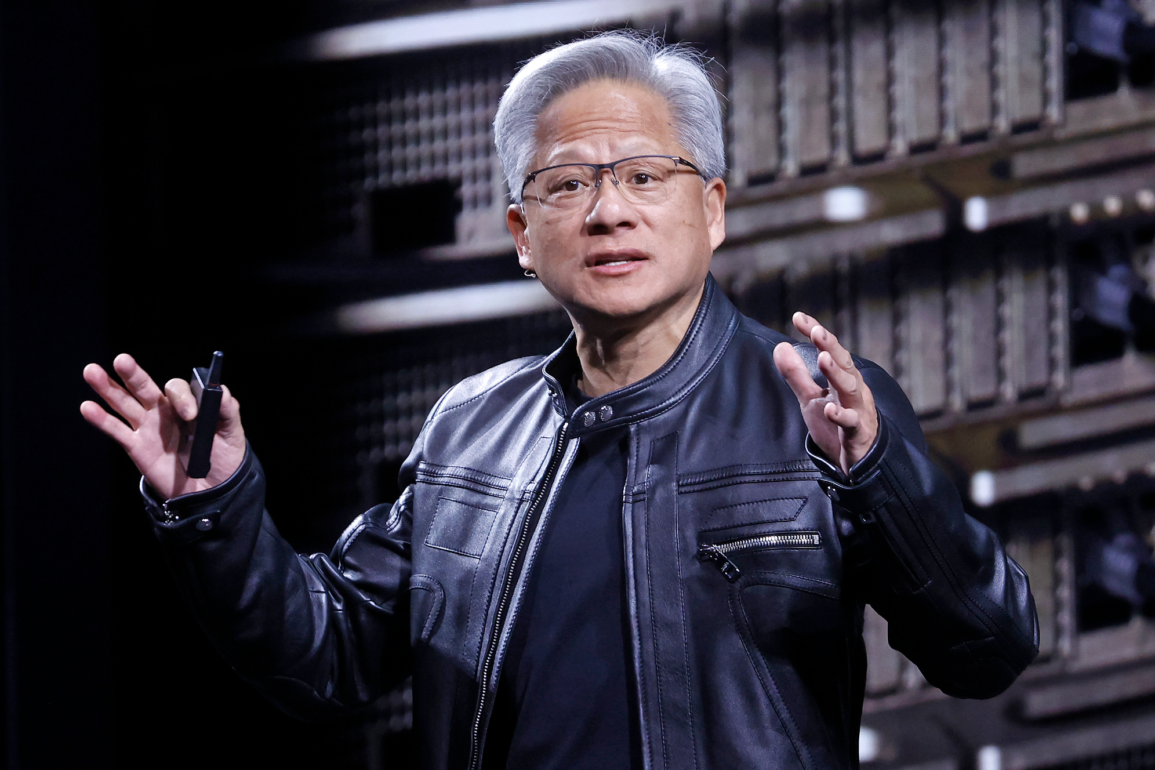Nvidia CEO Jensen Huang said Wednesday that the United States is “not far ahead” of China in the race to dominate artificial intelligence, urging the country to adopt a “nuanced strategy” to maintain its competitive edge.
Huang, who has walked a delicate line between the two global powers, praised China’s AI models—including DeepSeek, Alibaba, and Baidu—while noting that U.S. models remain more advanced. He also highlighted the rapid progress of China’s open-source AI projects, which he described as “well ahead.”
Huang’s comments come amid heightened tensions over U.S. export controls on AI chips and a global competition for dominance in computing power. In July, he visited China, signaling engagement despite the restrictions, and he warned that Chinese chip systems, including those from Huawei, should not be underestimated.
Here are five key insights from Huang’s remarks, delivered on CNBC’s “Squawk Box”:
1. China excels in energy; the U.S. leads in chips.
China is well ahead of us on energy. We are way ahead on chips. They’re right there on infrastructure. They’re right there on AI models.”
While Nvidia has announced plans to invest up to $100 billion in OpenAI to expand AI data centers, such projects demand enormous amounts of electricity—a domain where China significantly outpaces the U.S. According to the Energy Institute, China generated 10,000 terawatt-hours of electricity in 2024, more than double the United States’ output.
2. China’s chip industry should not be underestimated.
Don’t forget that this is a country not without any chips. They have Huawei. They have really, really sophisticated and really entrepreneurial startups building AI chips.”
Although U.S. companies like Nvidia lead in advanced chip design with processors like Blackwell, China’s Huawei and ambitious startups are rapidly developing domestic alternatives. Reports indicate that Chinese firms, including Alibaba and Baidu, are increasingly training AI models on locally designed chips instead of relying on foreign technology.
3. AI applications in China are advancing rapidly.
The applications in China are advancing incredibly fast. This is an area that I’m quite concerned about.”
Huang said this citing China’s relatively under-regulated industrial environment that allows for swift technology adoption.
According to a China State Council directive, the country aims to integrate AI into 70% of its industries by 2027, spreading applications across sectors and embedding AI into daily operations.
4. The diffusion of AI applications is critical to winning the race.
I hope that American companies in American society are going to be fast in adopting AI applications, because ultimately this industrial revolution wins at the AI application layer, at the diffusion layer.”
With China’s population exceeding one billion and commanding nearly half of the world’s AI researchers, the scale of its domestic market makes it a formidable competitor. “The Chinese market is large. They’ve got a billion users, and so it’s not a market that you could easily decide to walk away from if your ultimate goal is for America to win the AI race,” he said.
5. U.S. technology must remain globally influential.
We are essentially isolating American technology into America and forfeiting and competing the rest of the world to everybody else. If America, the American tech stack, is 80% of the world, then we are doing a good job winning the AI race. If the United States is 20% of the world, then we’ve lost the AI race.”
He warned that the U.S. risks losing its lead if its AI technologies are not allowed to “diffuse and be proliferated around the world.” Huang referenced White House AI advisor David Sacks. He also cited companies like Azure, CoreWeave, and Anthropic AI as critical to strengthening the entire U.S. tech ecosystem.




